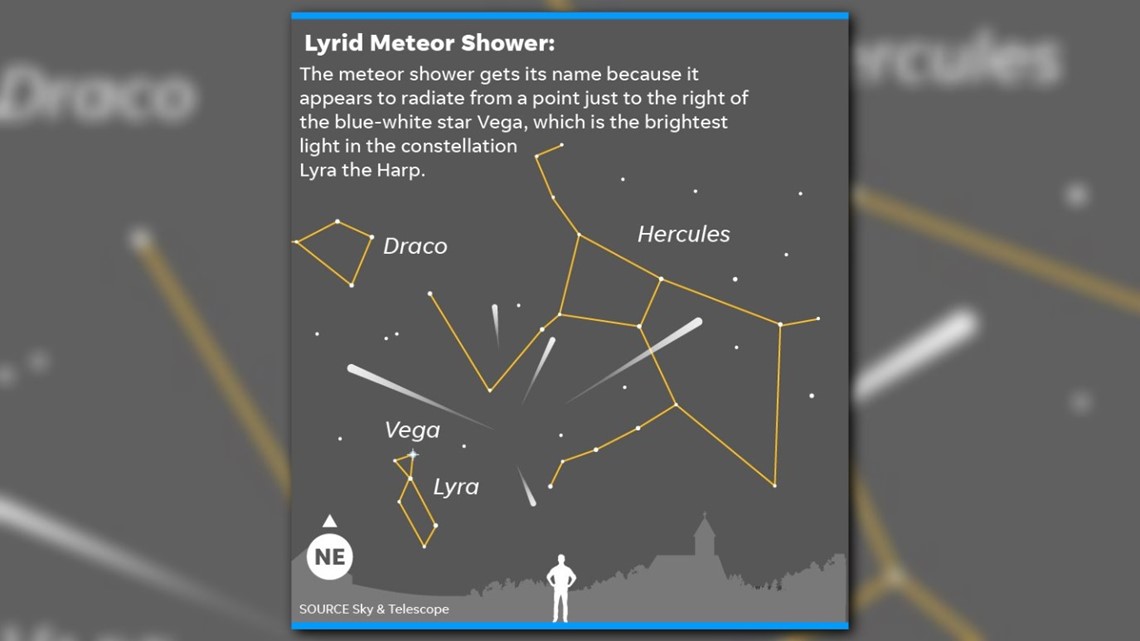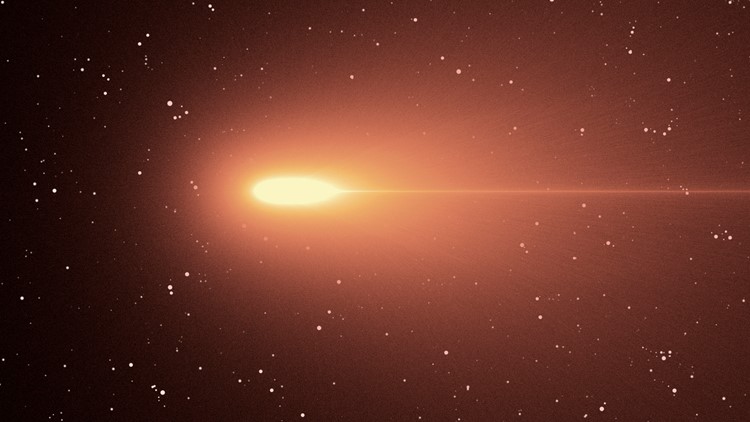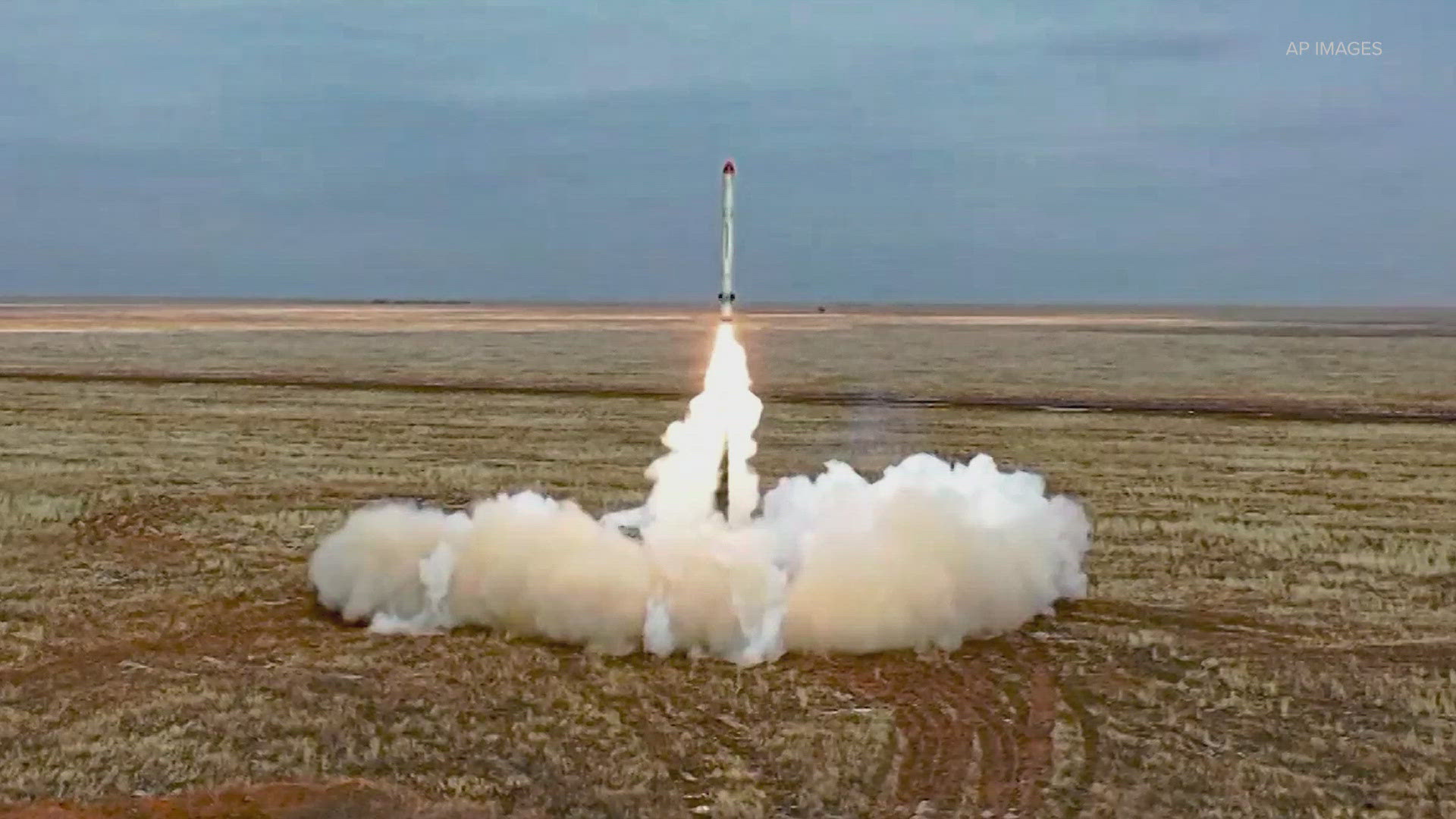One of the oldest meteor showers will dance over Earth this week. The Lyrids started Monday and last one week, with the best viewing set for this weekend.
Viewing on Thursday and Friday night should be good and even better on Sunday night with a mix of clouds and clear skies.
The annual meteor shower is active each year from about April 16 to April 25, Earthsky.org said.
"In 2018, the peak of this shower — which tends to come in a burst and usually lasts for less than a day — is expected to fall on the morning of April 22, with little or no interference from the waxing moon," Bruce McClure of Earthsky said.
The moon will be a quarter moon on Sunday, not bright enough to cause too much trouble. An early forecast from the National Weather Service shows clear skies for nearly the entire western half of the U.S., along with the immediate Eastern Seaboard. Much of the Midwest and Deep South could be cloudy.
The meteor shower sometimes bombards the sky with up to nearly 100 meteors per hour.
The Lyrids begin as tiny specks of dust that hit Earth’s atmosphere at 109,600 mph, vaporizing from friction with the air and leaving behind the streaks of light we call meteors, Astronomy magazine reported.
The meteors appear to emanate from the constellation Lyra the Harp, near the bright star Vega, which rises in late evening and passes nearly overhead shortly before dawn, the magazine said.


Lyrids are pieces of debris from the Comet C/1861 G1 Thatcher and have been observed for more than 2,700 years, NASA said, making them one of the oldest known showers.
The first recorded sighting of a Lyrid meteor shower goes back to 687 BC in China. Observers there said the Lyrids were "falling like rain."
In mid-April of each year, Earth runs into the stream of debris from the comet, causing the meteor shower.
The Lyrids are known for their fast and bright meteors, NASA said, though not as fast or as plentiful as the famous Perseids in August:



